Tutoroo is an online marketplace that connects students with private language tutors, focusing on native speakers for in-person or online lessons. This article reviews Tutoroo’s reputation and pricing, explores alternatives (including My Engineering Buddy), and details how the platform works. We also cover Tutoroo’s company background, support policies, and future outlook.
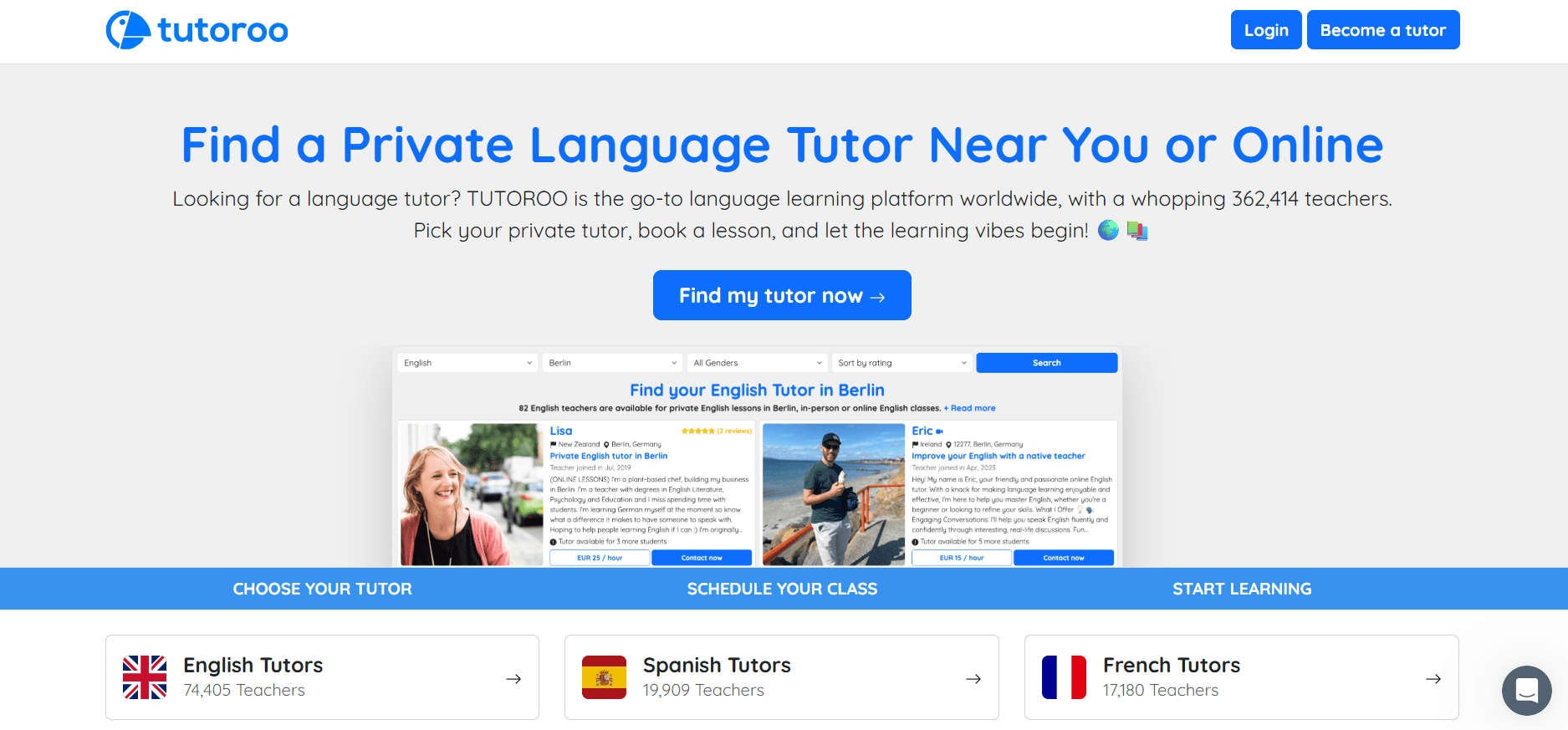
TUTOROO Reviews and Testimonials
Tutoroo’s own site and review aggregators show mixed feedback. On its website, Tutoroo highlights glowing student testimonials about improved language skills and enjoyable lessons. External review sites like reviews.io report an overall rating around 3.6/5 (29 reviews) with about 66% recommendation. Positive comments note the platform is “easy to use” with “skilled, friendly” tutors and flexible scheduling. Customers praise Tutoroo’s large native-speaker tutor base and customized lessons.
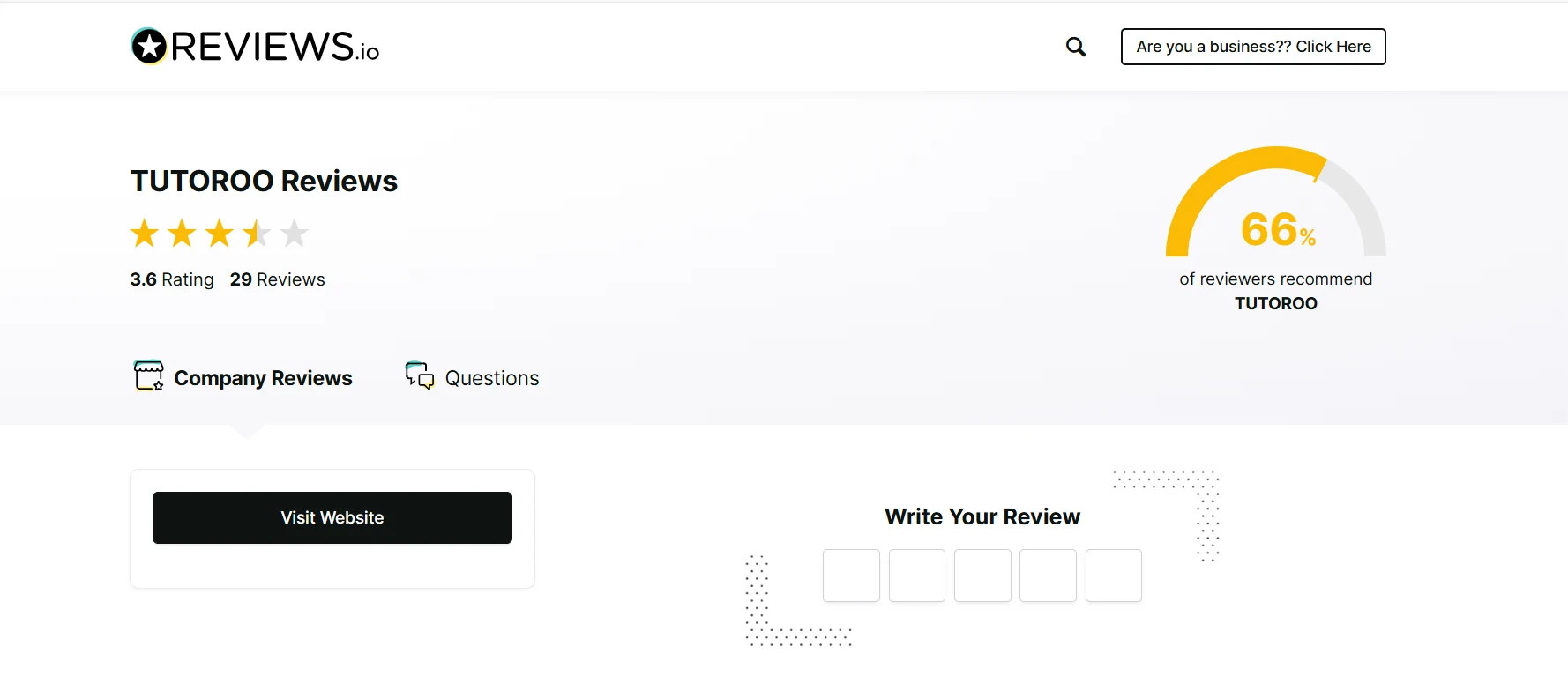
However, complaints also surface on forums and review sites. Some Reddit users warn of hidden costs: for example, one report describes Tutoroo’s model as a “bait-and-switch,” where students pay upfront for two weeks of lessons and often cannot get a refund. Tutor feedback sites list issues like unpaid introductory lessons and difficulty obtaining refunds. On ComplaintsBoard, Tutoroo resolves about 73% of complaints but still has over 100 filed issues (often about money). In one reviews.io comment, a user wrote that Tutoroo refused a refund request and only offered to find a new tutor instead. Another user reported paying €60 and receiving no classes, with support “refusing to give one”.
Is Tutoroo legit? Yes – Tutoroo is a registered, active company (founded 2016) with thousands of tutors worldwide. ComplaintsBoard even gives it a 100% trustworthiness rating, calling it “fully legitimate”. Most negative reports stem from policy issues rather than outright fraud. In summary, Tutoroo has many happy students and tutors, but some caution is warranted regarding its payment policies.
TUTOROO Pricing
Pricing Range
Tutoroo allows tutors to set their own hourly rates, which vary widely by language, tutor experience, and location. Their blog suggests basic tutors charge about $10–$30 per hour, while highly qualified or specialized tutors charge $30–$70+ per hour. In practice, many students pay roughly $15–$40/hour for language lessons. For example, listings on Tutoroo show rates like SGD 50 (~$40) per hour for experienced English teachers. (Tutoroo does not publish fixed pricing – you negotiate directly with tutors.) The site’s marketing links emphasize finding a “tutor nearby” by language and city.

What Students Say About Pricing
Student reviews vary on value. Many say Tutoroo is easy and effective, justifying the cost for quality native tutors. Some compare it favorably to cheaper options because of personalized service. However, cost complaints arise: if a student stops lessons after the initial two-week block, they still owe the full package. On Reddit, a user noted that tutors might push students to sign up immediately “at no risk or cost” to Tutoroo, which critics find unfair to both students and tutors. Overall, pricing is generally seen as in line with private tutoring markets, but the upfront payment model surprises some students.
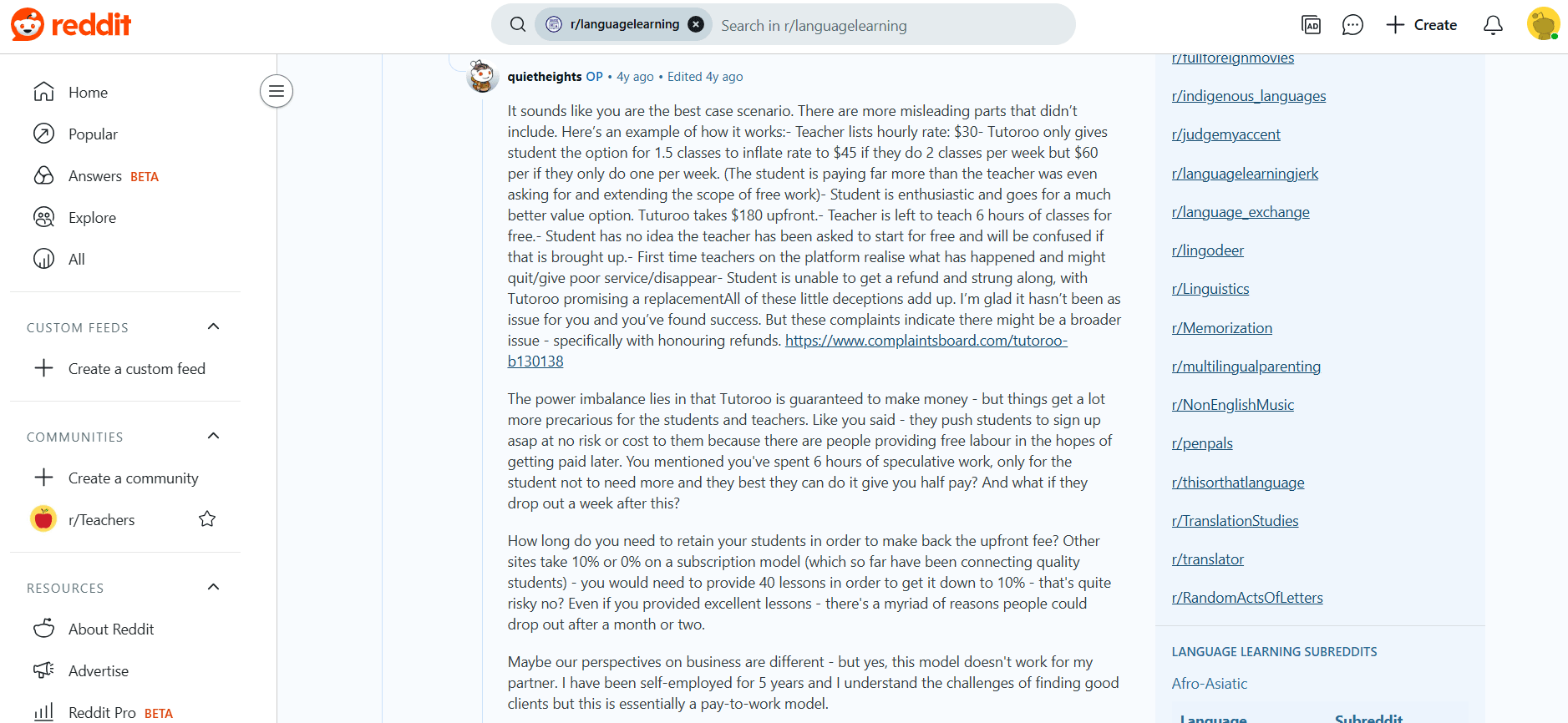
Hidden Costs
The main hidden cost is the two-week “finder’s fee.” New students pay Tutoroo the equivalent of two weeks of lessons up front. That means the first 2–4 classes (if meeting 1–2 times weekly) are paid to Tutoroo, not the tutor. If a student cancels after this period, Tutoroo’s policy guarantees tutors 50% of those fees but provides no refund to the student. In effect, students lose that upfront payment if they discontinue. No other registration or booking fees are listed. Cancellations after booking a lesson typically require 24+ hours’ notice or incur a fee, but Tutoroo’s official documents do not detail student-side cancellation refunds. (Reviews indicate Tutoroo rarely grants student refunds – one user said they paid €60 and “got nothing in return”.)
How Pricing Works
Payment is straightforward after the introductory phase. Once the first two-week block is paid to Tutoroo, students pay tutors directly (usually in cash or bank transfer) for subsequent lessons. There is no ongoing commission or subscription fee – Tutoroo’s income comes from that first payment. Students can negotiate discounts or bulk packages directly with tutors if agreed, but the platform itself has no standard group rates or recurring subscription model. Payment methods are informal between student and tutor (cash or local bank transfer) after sign-up.

Free Trial
Tutoroo does not offer a zero-cost trial. The nearest equivalent is the paid two-week lesson block. New students must pay for two weeks of classes in advance, which Tutoroo holds. In return, they receive that period of lessons. So while there is no free trial lesson, you can essentially test a tutor during those paid classes. (Many tutors and reviewers suggest conversing with a tutor on Tutoroo’s chat before paying to ensure a good fit.)
Refund Policy
Officially, Tutoroo’s terms do not refund that upfront payment to students. Instead, Tutoroo’s tutor guarantee states that if a student drops out after two weeks, the tutor still receives half of the prepaid amount. In practice, students have reported being denied refunds. Some reviews say Tutoroo only offered to find another tutor rather than return money. Since no detailed student refund policy is published, students considering Tutoroo should assume the initial payment is non-refundable, except as partial credit toward new lessons.
TUTOROO Alternatives
Students often seek other options for different subjects, online delivery, or pricing models. Unlike Tutoroo’s focus on in-person language tutoring, many competitors offer broad subject coverage or fully online classes. Below are some top alternatives, including My Engineering Buddy (MEB), which specializes in STEM tutoring.
My Engineering Buddy (MEB)
My Engineering Buddy is an online tutoring company focused on higher-education STEM subjects (engineering, math, science) and test prep. It operates globally (US, UK, Canada, Australia, Gulf countries and claims a 4.8/5 rating with 97% of users recommending it. Tutors are typically rigorous degree holders or certified teachers, vetted for quality. Unlike Tutoroo, MEB charges per session (plans start around $26/hr and has a clear refund policy: for example, full refunds if you cancel >24 hours before a session. In contrast, Tutoroo’s model centers on languages with an upfront 2-week fee. Students comparing the two note that Tutoroo offers flexible scheduling and native speakers for languages, while MEB delivers specialized subject experts with strong satisfaction guarantees.
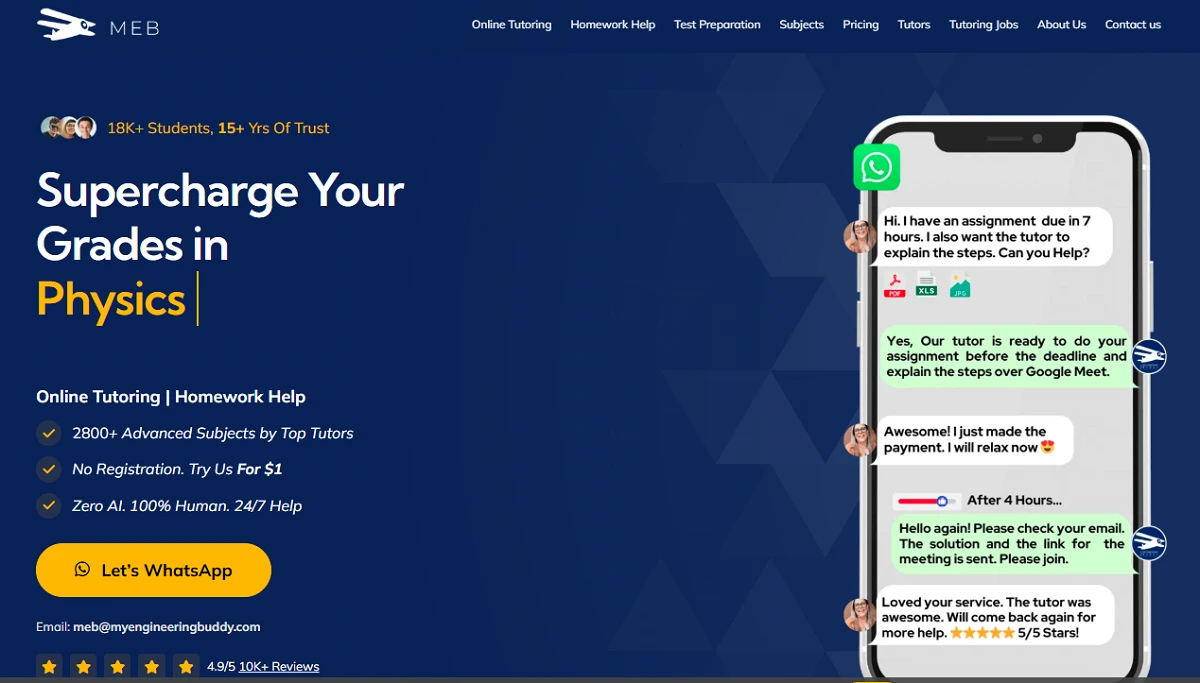
Preply
Preply is a large online marketplace for language lessons (and some academic subjects). Tutors set hourly rates (typically $15–$50/hr) and connect via a video classroom. Preply has a much wider pool of languages than Tutoroo and offers features like interactive whiteboards. Unlike Tutoroo, Preply charges a commission on each lesson and does not require an upfront multi-lesson payment. The platform is fully online, with no emphasis on local tutors. Students praise Preply’s flexibility and low entry cost, but note that tutor quality varies and cancellation policies can be strict. Tutoroo, by contrast, specializes in native in-person instruction with no extra platform fees (after the deposit).

TutorMe
TutorMe is an on-demand online tutoring platform covering 300+ subjects (math, engineering, coding, etc.). It is often used via schools or universities but also open to individuals. TutorMe offers subscription plans (starting around $26/hr) and unlimited access to tutors. The platform provides a built-in virtual classroom with whiteboard and resources. Compared to Tutoroo, TutorMe is more academic/general and fully online (no local matching). Tutors on TutorMe have set hours and rates determined by the company, whereas Tutoroo tutors set their own rates and meet locally. Students might choose TutorMe if they need help across many subjects; Tutoroo remains a choice for language learning with native speakers.

iTalki
iTalki is an online marketplace exclusively for language learning. It connects learners with native-speaking tutors and community tutors worldwide. Rates start very low (from $10/hr) because iTalki uses a pay-per-lesson model and allows part-time educators or even informal language exchange partners. There’s no upfront multi-lesson fee: students book and pay only for each lesson. iTalki also has a reputation/review system but does not vet tutors officially. Compared to Tutoroo, iTalki is more budget-friendly and international (hundreds of languages and dialects), but all lessons are online. Tutoroo’s edge is real-time local tutoring and no per-lesson platform commission, at the cost of higher minimum payments upfront.
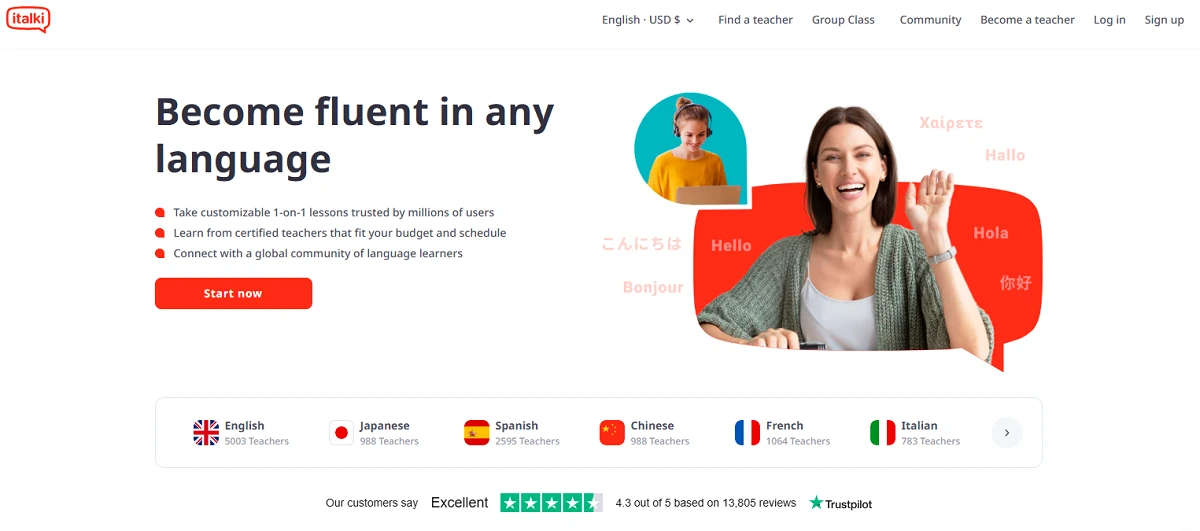
Varsity Tutors
Varsity Tutors is a U.S.-based tutoring network offering one-on-one and group classes in K-12 subjects, test prep, languages, and college courses. Tutors are rigorously screened (only ~10% accepted) and offer high-quality instruction. Pricing starts around $60/hr or more, reflecting expert tutors and personalized curriculum. The service provides extensive learning materials and a mobile app. In comparison, Varsity Tutors is much broader in subject scope and operates via a professional agency model, whereas Tutoroo is a simple peer-to-peer marketplace for languages. Families in the US/Canada often find Varsity better for math or science help, while Tutoroo remains ideal for conversing with native language speakers in person.
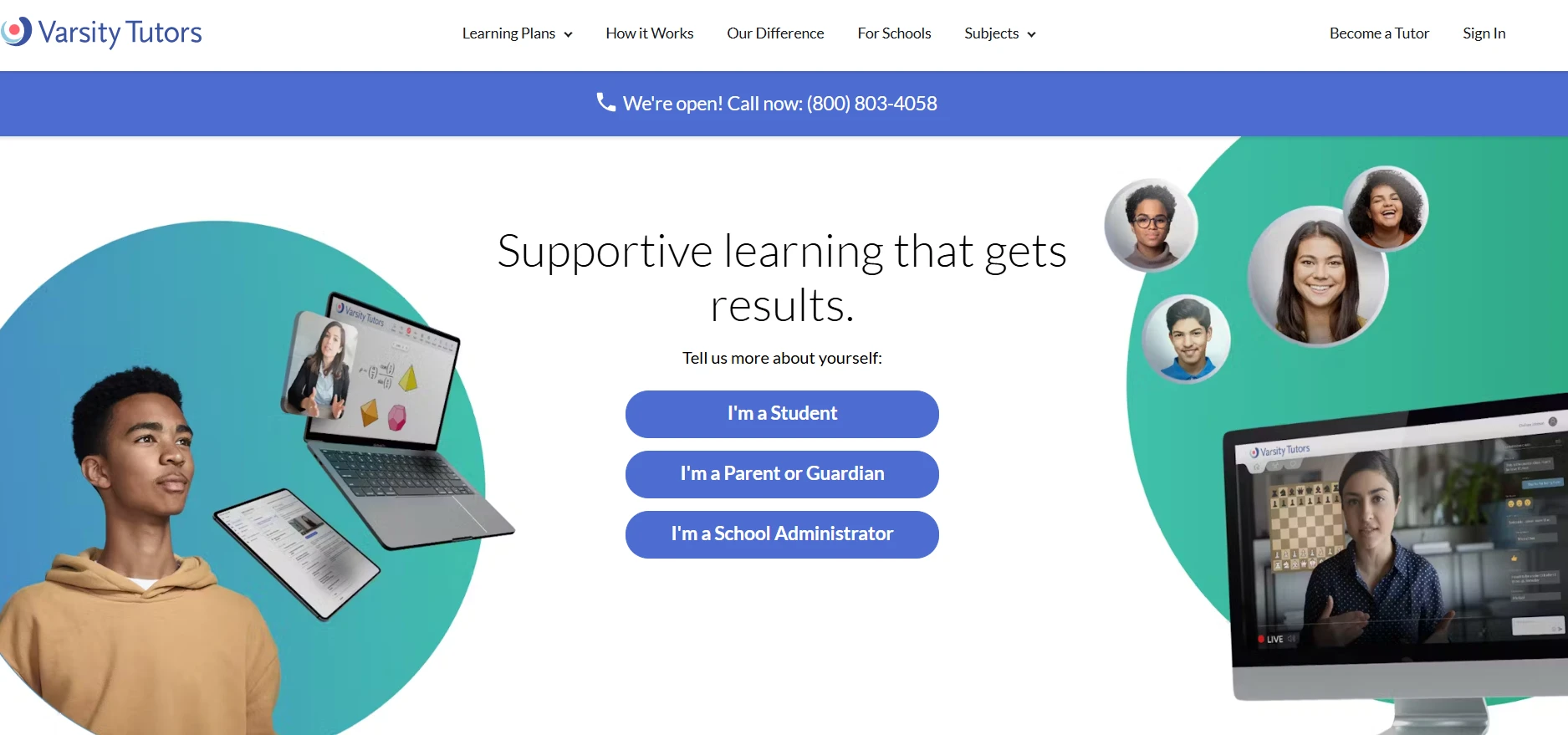
How it Works
For Students
Students start by creating a free account on Tutoroo’s website or app. They search for tutors by language and location, viewing profiles, photos, and hourly rates. Once a suitable tutor is selected, the student initiates contact (often by paying the two-week lesson fee via the site). Tutoroo then connects them via its built-in chat (“Tutoroo Messenger”) to finalize details. After booking, the student attends sessions in person or online at agreed times. There are no middle-man fees after the initial payment: the tutor sets the rate, and students pay cash or transfer the agreed amount directly to the tutor each lesson thereafter. The platform’s role is to match and coordinate that first meeting; beyond that, tutor and student interact directly.

For Tutors
Tutoroo allows anyone fluent in a language (native or near-native) to sign up as a tutor with no qualification needed:. To apply, tutors fill out the online sign-up form, specifying their language and location. Tutoroo then reviews the application (usually within a day) and helps match tutors to student requests. Tutors keep 100% of their lesson fees after the introductory period: as an FAQ explains, “as a tutor you do not have to pay any agency or registration fees upfront,” and instead agree that the first two weeks of your lessons go to Tutoroo. After that, students pay tutors directly via cash or bank transfer. Tutoroo advertises that top tutors can earn thousands per month if fully booked.
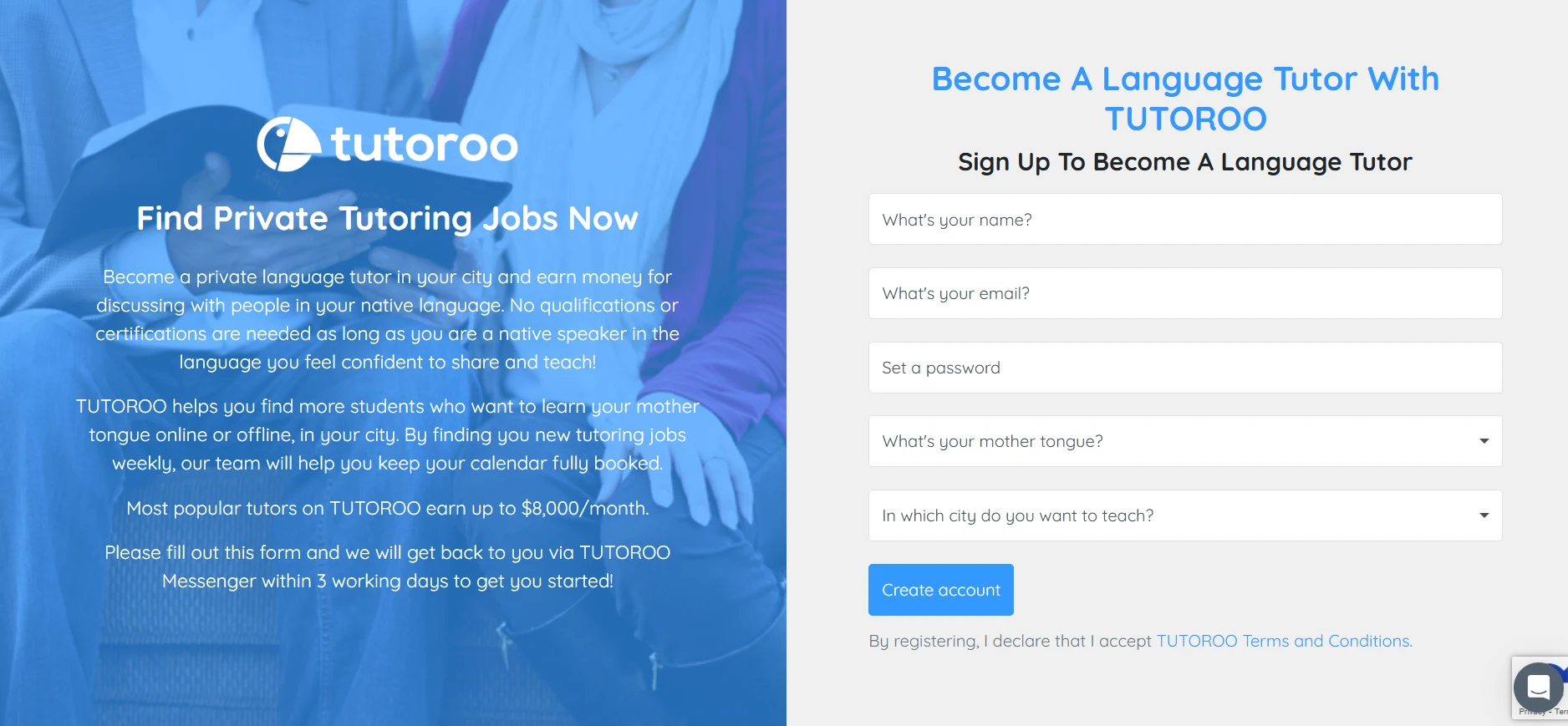
FAQ for Tutors:
- Do I need teaching credentials? No – Tutoroo welcomes any native or fluent speaker.
- Do I pay to join? No registration or agency fees; the only “cost” is giving up your first 2 weeks’ pay to Tutoroo.
- When do I get paid? After the first two-week block, you receive lesson fees directly from students (cash/transfer).
- How do I find students? Students contact you after browsing your profile. Tutoroo’s team may also suggest leads to fill your calendar weekly.
TUTOROO Company Information
Tutoroo was founded in March 2016 in Singapore by Nicolas Vanhove. It is a privately held startup (about 15 employees) that has expanded to 10+ countries in Asia-Pacific, Europe, the Middle East, and beyond. Tutoroo’s mission is to connect learners with native speakers for language practice. The platform offers tutoring in virtually any language – as the site says, “any language under the sun”} – and supports both online and in-person lessons. According to its website, Tutoroo now works with around 350,000 tutors in over 160 cities worldwide, introducing thousands of students to private lessons each month.
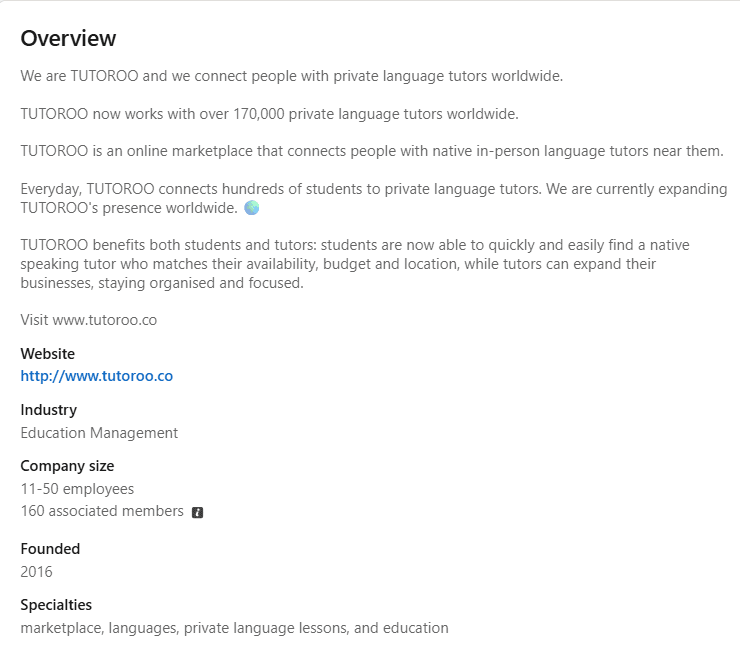
USP of TUTOROO
Tutoroo’s unique strength is its focus on native-speaker language tutoring with local convenience. Students can find real people in their city (or online) to practice languages in a natural way. Tutoroo advertises that tutors set their own rates and schedules, so students get high flexibility and tutors keep their earnings. Its large global network (350k tutors) means students can usually find a match for popular languages like English, Spanish, Mandarin, etc., at times that fit their needs. The platform is also free for students to use beyond the initial booking: there are no subscription fees or commissions after the two-week payment. In short, Tutoroo’s USP is a wide choice of native tutors, easy local matchups, and direct payment to tutors without ongoing platform fees.
Drawbacks of TUTOROO
However, Tutoroo has some downsides. The upfront two-week payment can be a financial hurdle and leads to criticism: one reviewer likened it to a “scam” since students often can’t recover that money if they cancel. Tutor qualifications are only vetted by fluency (any native speaker may join), so quality can vary. Some users on forums complain of poor communication and refund issues. Geographically, Tutoroo’s strength is also a limitation: it’s best for languages, so it doesn’t help with non-language subjects. In summary: great for finding native tutors (a strength), but be aware of the rigid payment policy and variable tutor vetting (a weakness).
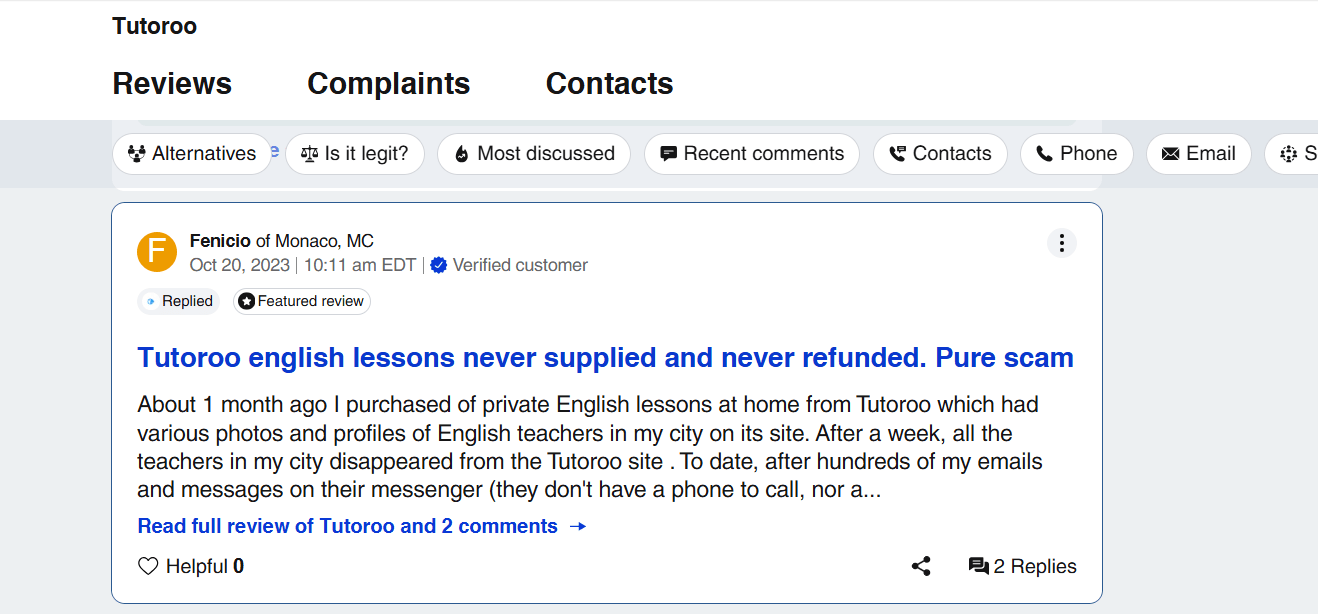
Comparison with My Engineering Buddy
Tutoroo and MEB serve very different needs. MEB is targeted at STEM, engineering, and advanced college courses (homework help, lab reports, etc.) across the US, UK, Canada, Australia, and the Gulf. It claims a high satisfaction rate (97% recommend, 94% session satisfaction). Tutoroo, by contrast, is solely about language learning with local or online tutors (no STEM or K-12 tutoring). In pricing, Tutoroo’s model involves a prepaid two-week block for languages, whereas MEB charges per session (plans start ≈$26/hr) with a transparent refund policy. In tutor selection, MEB advertises expert tutors, while Tutoroo’s marketplace has any qualified native speaker. In short, Tutoroo is best for learning languages with native speakers, while MEB focuses on rigorous STEM tutoring with strict tutor vetting.
Costumer Support and Policies
Tutoroo provides support via email/chat, but responsiveness seems mixed. ComplaintsBoard notes 73% of complaints are resolved, showing some follow-up. However, forum posts indicate students often struggle to get timely help or refunds. In comparison, MEB reports very few refund requests (only 0.87% of sessions in 15 years) and a clear cancellation policy, suggesting consistent support. Tutoroo’s official refund/guarantee is mainly designed to protect tutors (50% payout if a student leaves early), which may leave students feeling unprotected. Overall, Tutoroo’s customer service is adequate but not outstanding, especially regarding money issues, whereas MEB emphasizes reliable support and recourse.
Global Reach and Localization
Tutoroo is truly global. It operates in Asia-Pacific (e.g. Singapore, Hong Kong, Australia), Europe, Africa, and the Middle East (Qatar, UAE, Saudi Arabia). Its tutors cover dozens of languages (from English and Mandarin to Thai, Korean, Dutch, etc. as listed on its site). The platform automatically shows local results based on your location. In contrast, MEB’s client base is more focused on Western and Gulf regions. Tutoroo’s localization means parents in, say, the US or UK can quickly find a nearby Spanish or Mandarin tutor, and in Gulf countries they can find Arabic or English tutors on the same platform. Both services allow online lessons, but Tutoroo’s emphasis on local matching distinguishes its reach from MEB’s more global online-only model.

TUTOROO’s Future Plans
As of 2025, Tutoroo has not publicly announced a specific AI or technology roadmap. Its recent communications focus on expanding language coverage and cities (it mentioned operating in “160+ cities worldwide”). We did not find any press about AI features on Tutoroo’s official channels. Given industry trends, Tutoroo may eventually use AI for tutor matching or learning tools, but no concrete plans are available. (In short, no official future roadmap details or AI plans were found.)
FAQs About TUTOROO
What is Tutoroo? Tutoroo is an online marketplace to find private language tutors. It matches you with native speakers for one-on-one lessons (in person or online) in dozens of languages. There are no predetermined courses – students search by language and location and hire whichever tutor fits their needs.
How does Tutoroo’s pricing work? Are there hidden fees? Tutors set their own rates (often $10–$70/hr depending on expertise). The only required prepayment is a two-week lesson block (e.g. if one lesson/week, you pay for 2 lessons). That payment goes to Tutoroo initially. After those two weeks, you pay the tutor directly each lesson. In effect, the “hidden” fee is that up-front two-week deposit; there are no other mandatory fees or subscriptions.
Can I get a refund if I’m unhappy? Generally no. Tutoroo’s policy is that the tutor keeps 50% of that initial payment if you stop after two weeks. User reports suggest Tutoroo typically refuses cash refunds, offering instead to find you another tutor. So you should be sure you want to continue before paying. In comparison, some competitors (like MEB) have strict refund rules with partial returns, but Tutoroo itself does not refund that upfront payment to students.
Is Tutoroo legitimate and safe? Yes. Tutoroo is an established company (Singapore-based, founded 2016). ComplaintsBoard calls it “highly reputable and fully legitimate”. Many students report positive experiences. However, due diligence is wise: read tutor profiles and talk with tutors first on Tutoroo’s chat to ensure a good fit. As always, use safe payment methods and check reviews when possible.
How does Tutoroo compare to My Engineering Buddy (MEB)? They serve different needs. MEB focuses on STEM and assignment help with expert tutors, while Tutoroo is solely language learning with native speakers. MEB charges per session (plans from $26+/hr) and markets to college/high-school students, whereas Tutoroo charges a two-week deposit for language classes. Tutoroo’s tutors work independently; MEB’s tutors are part of a branded network. In practice, if you need math or science help, MEB or a general tutoring site is better; for one-on-one Spanish/Chinese/English lessons, Tutoroo may suit you more.
Conclusion
Tutoroo excels at its core mission: connecting learners with native language tutors in a convenient, flexible way. Its strengths are a huge network of tutors and the simplicity of arranging lessons. On the downside, the upfront two-week payment and lack of student refunds can frustrate users. Overall, Tutoroo can be great for motivated learners, but prospective users should understand its policies. For students needing advanced STEM tutoring or school help, My Engineering Buddy (MEB) is a solid alternative – it maintains very high ratings (4.7/5) and comprehensive support.
******************************
This article provides general educational guidance only. It is NOT official exam policy, professional academic advice, or guaranteed results. Always verify information with your school, official exam boards (College Board, Cambridge, IB), or qualified professionals before making decisions. Read Full Policies & Disclaimer , Contact Us To Report An Error

